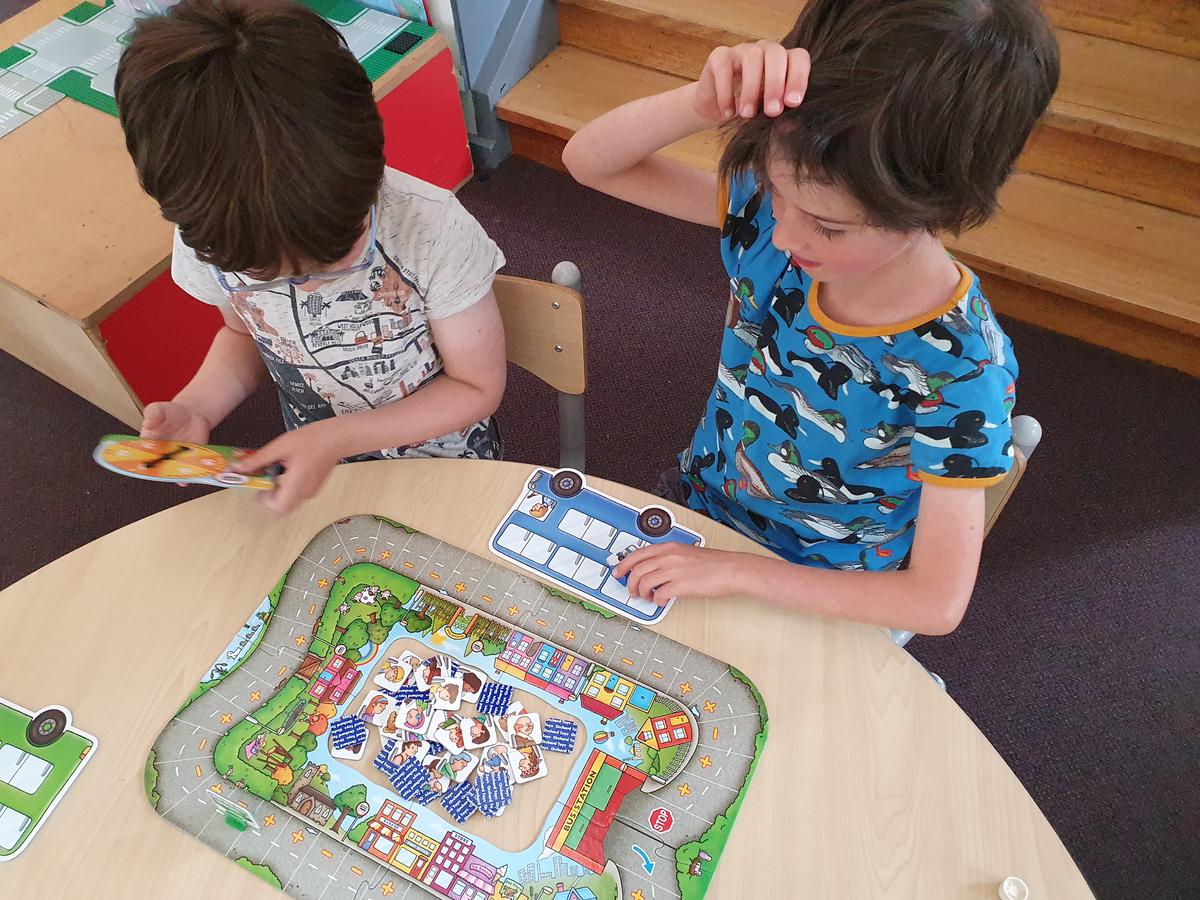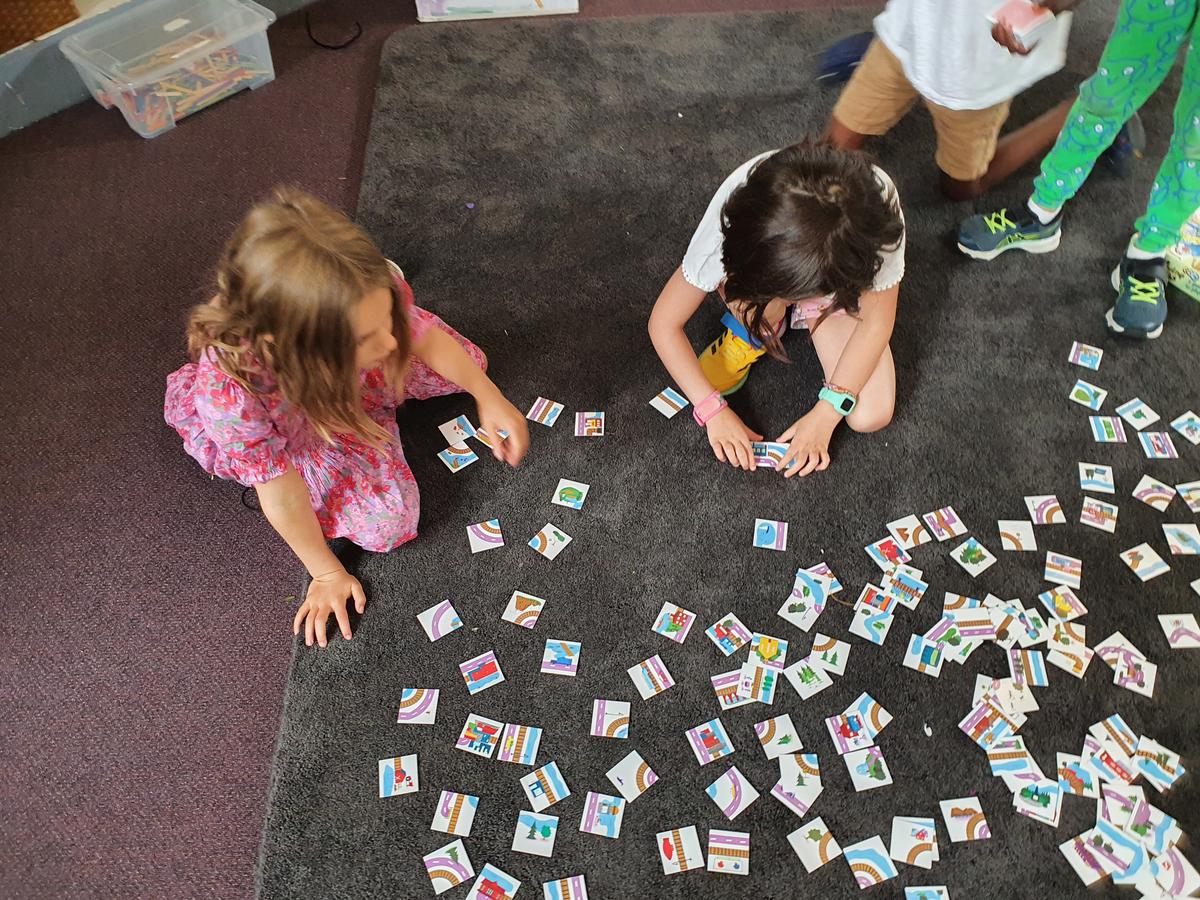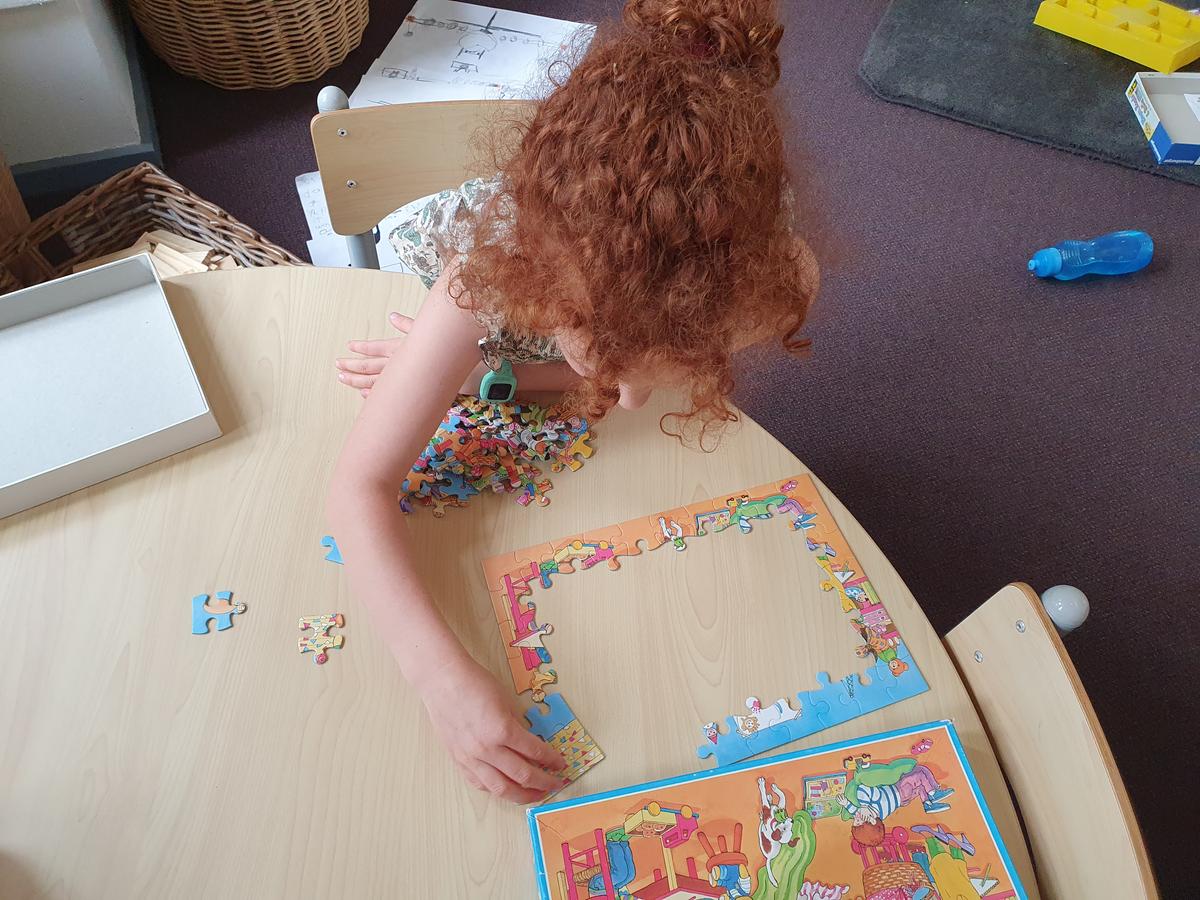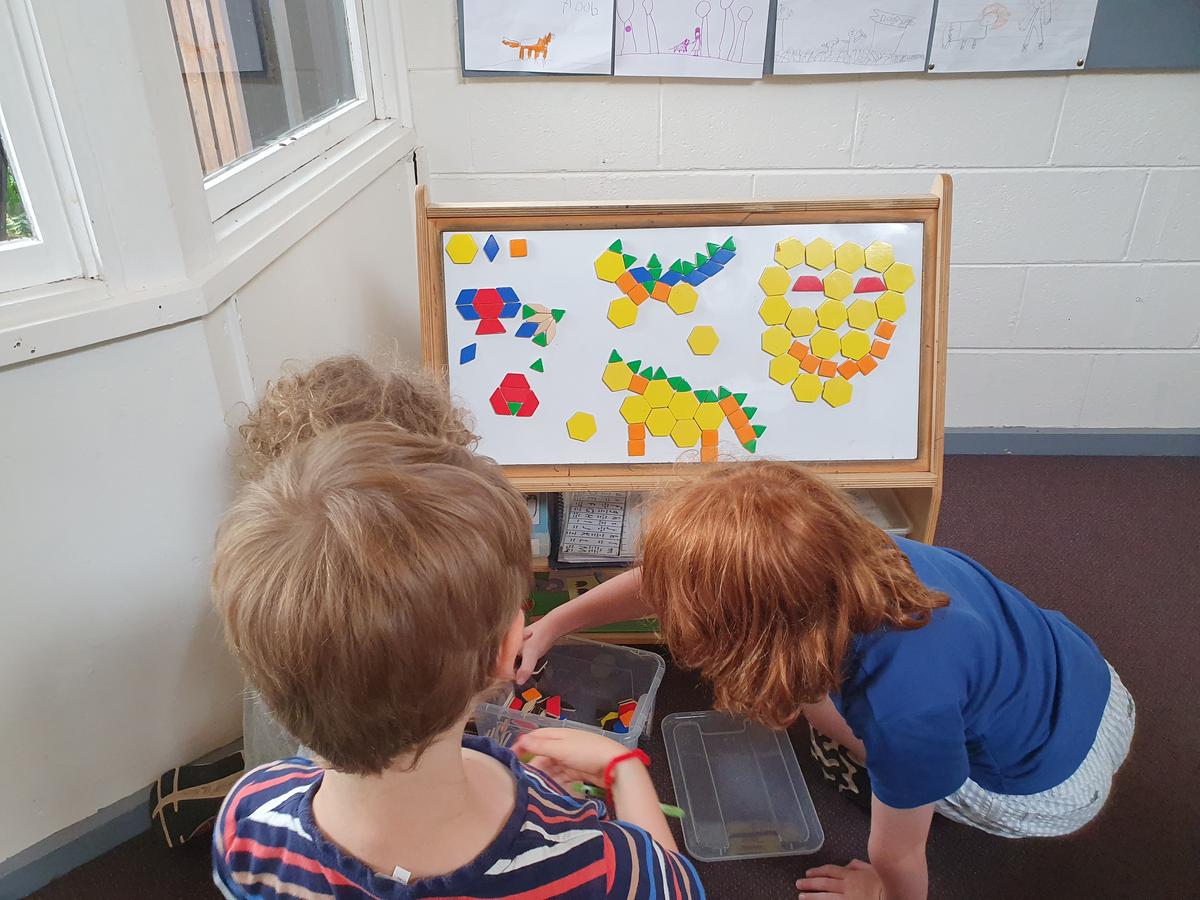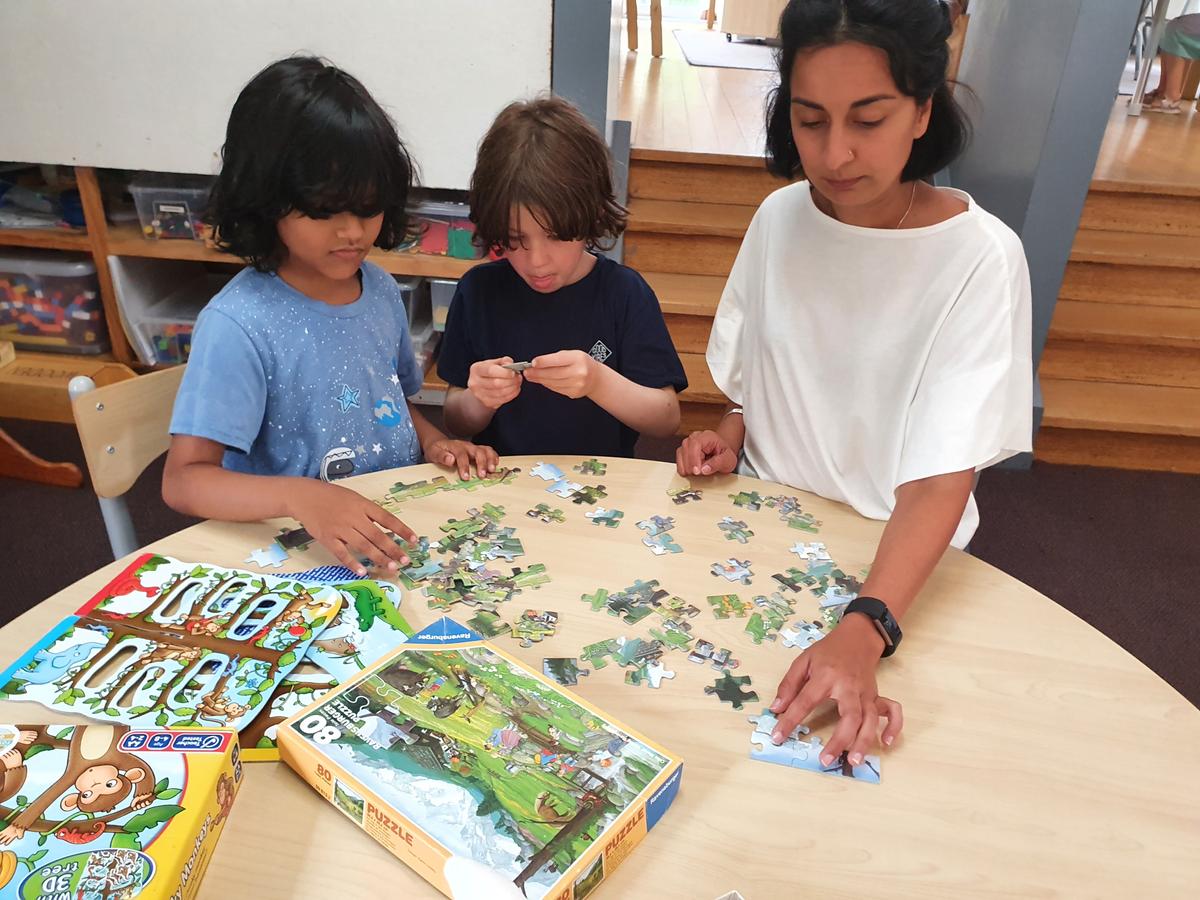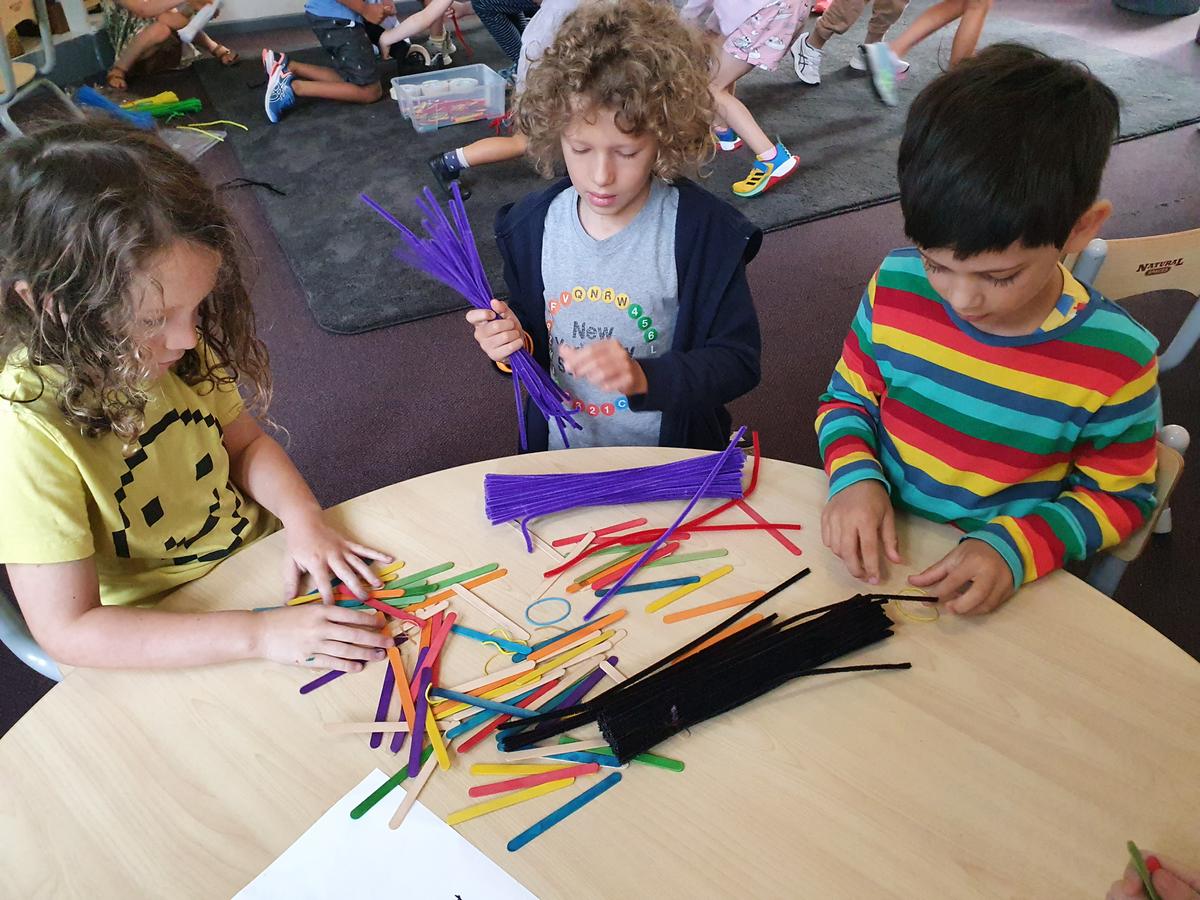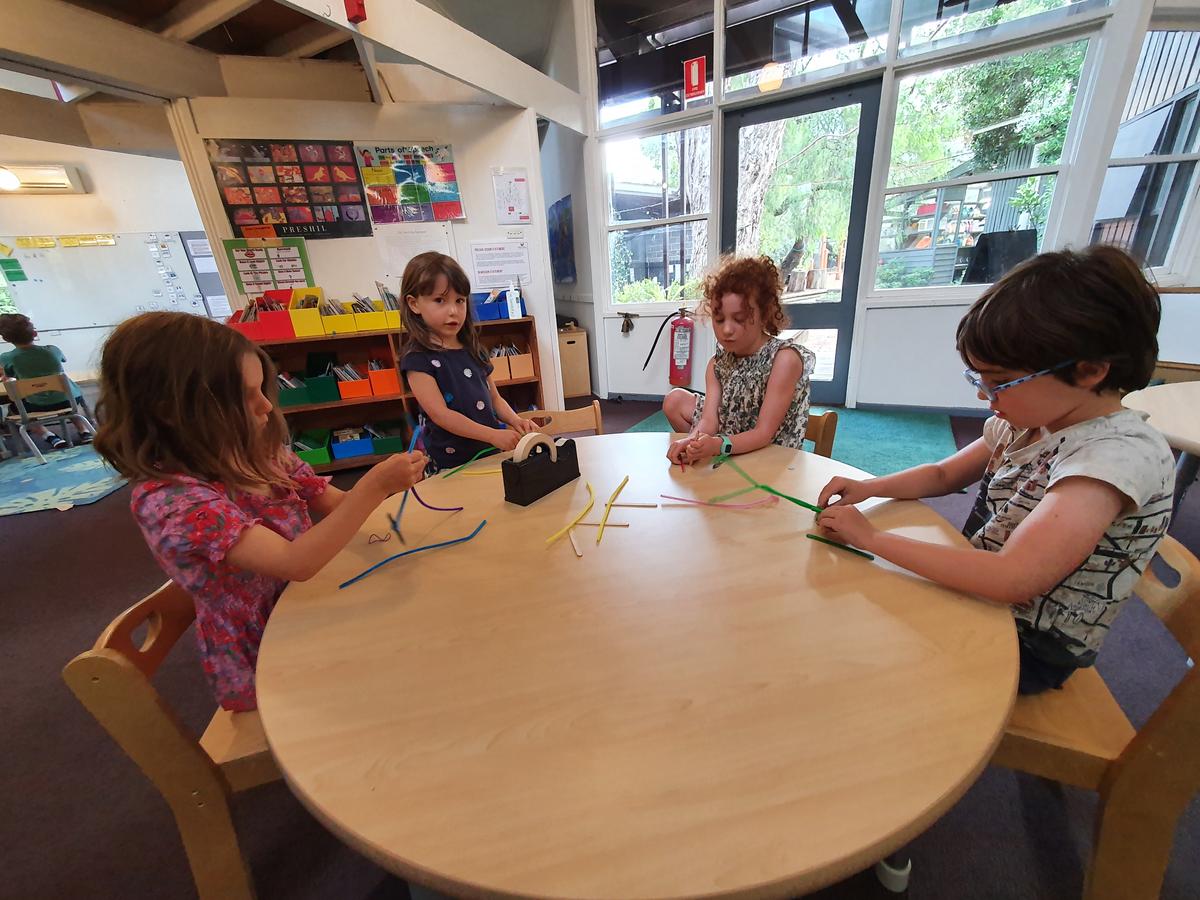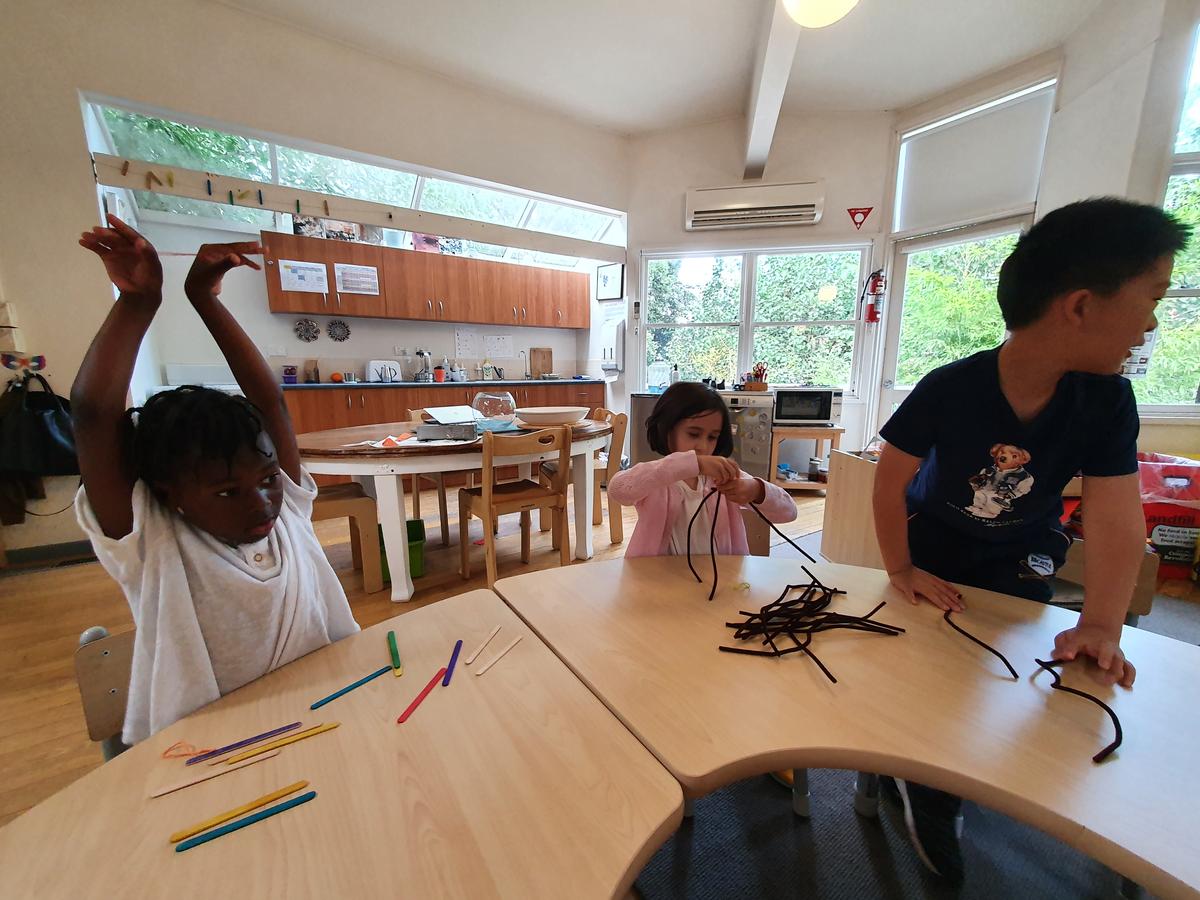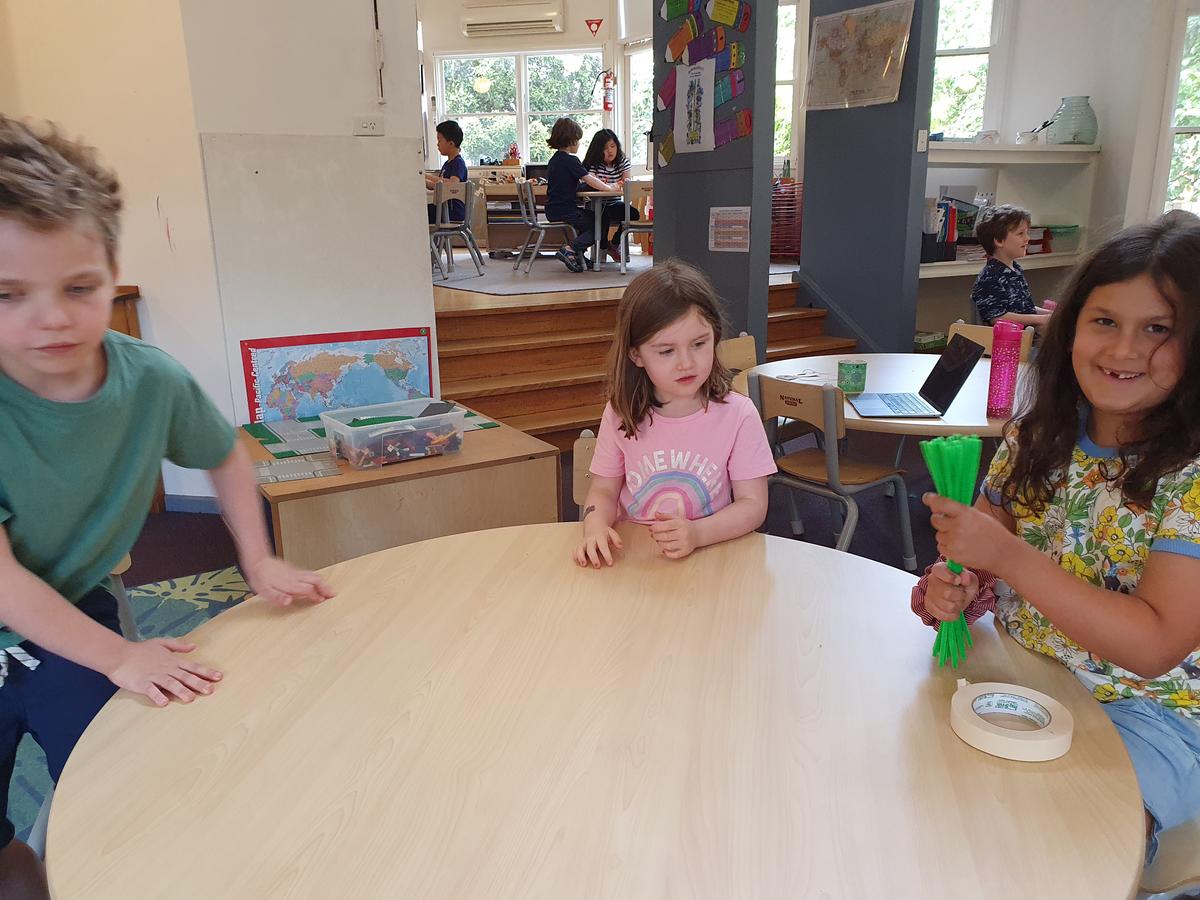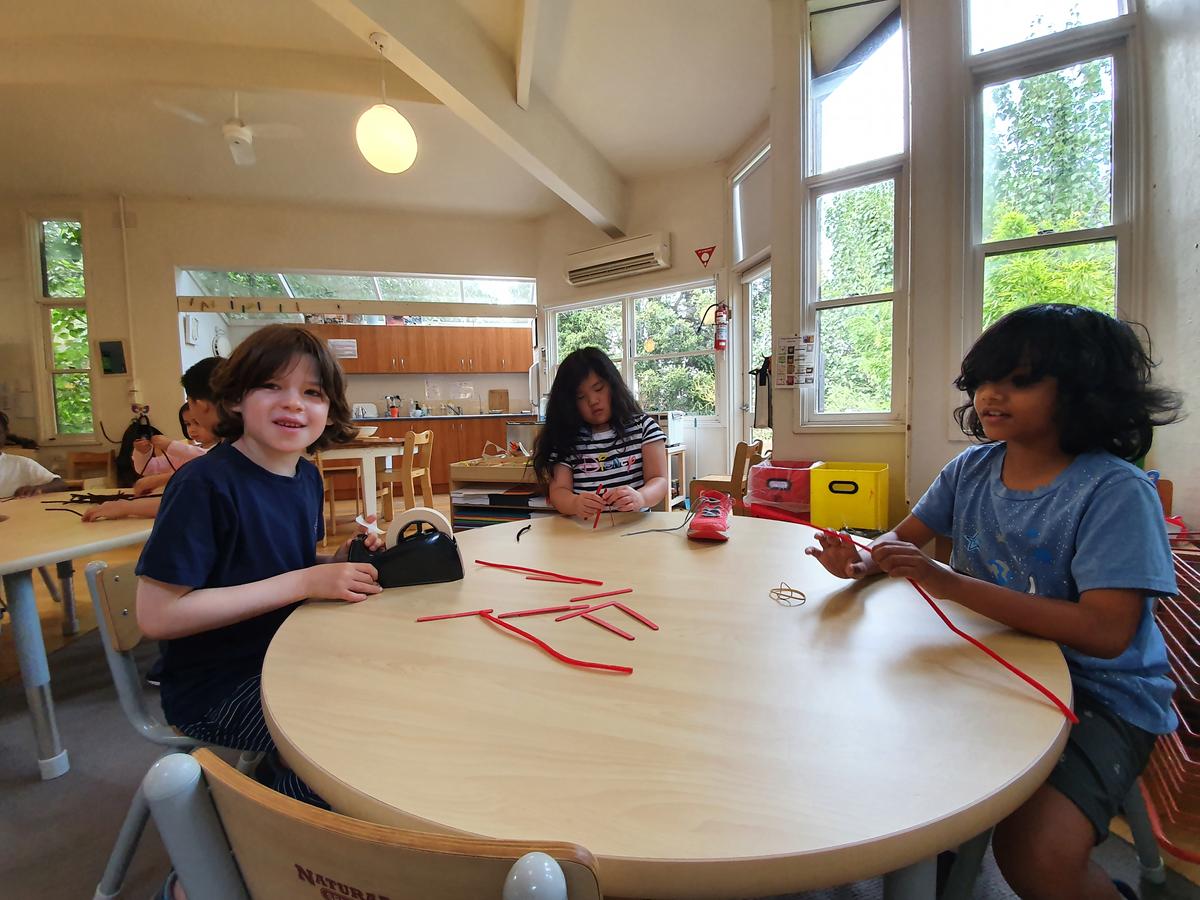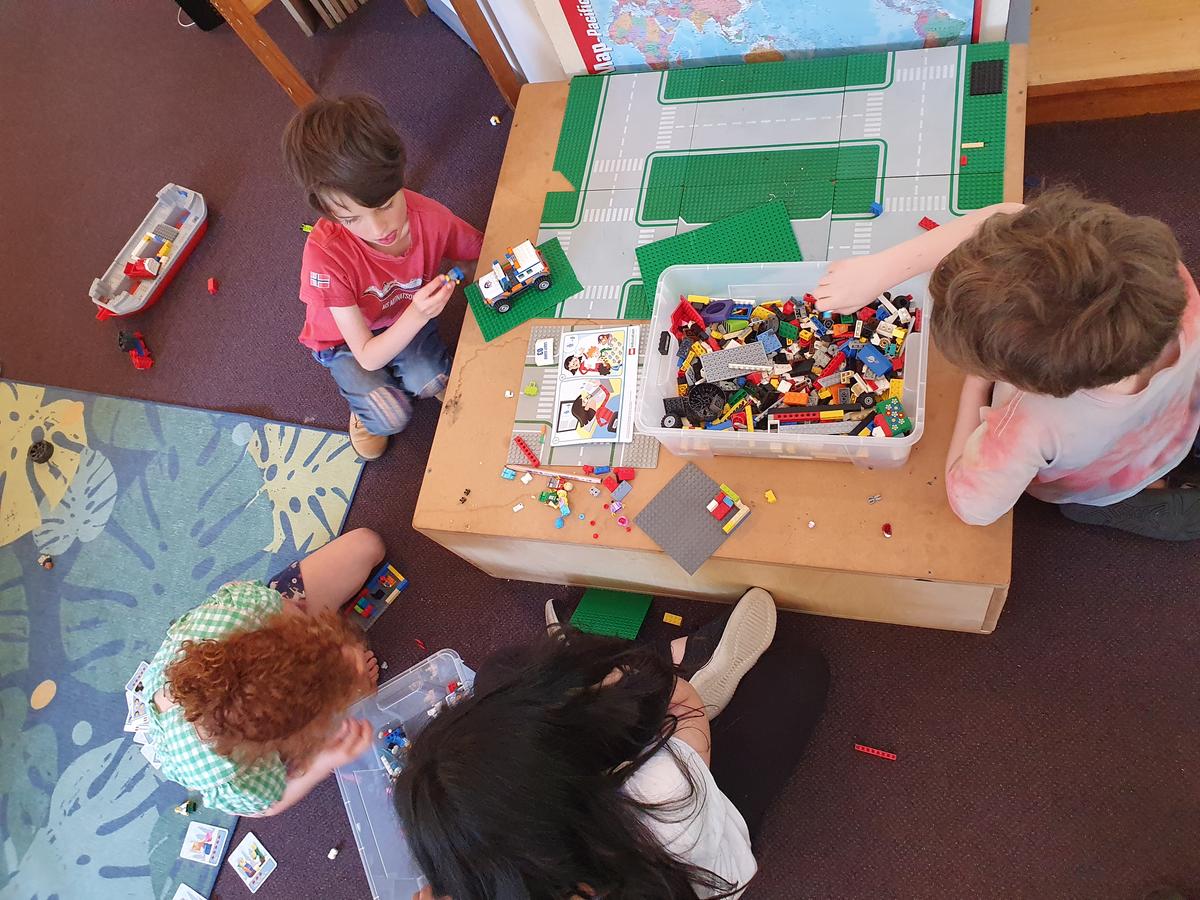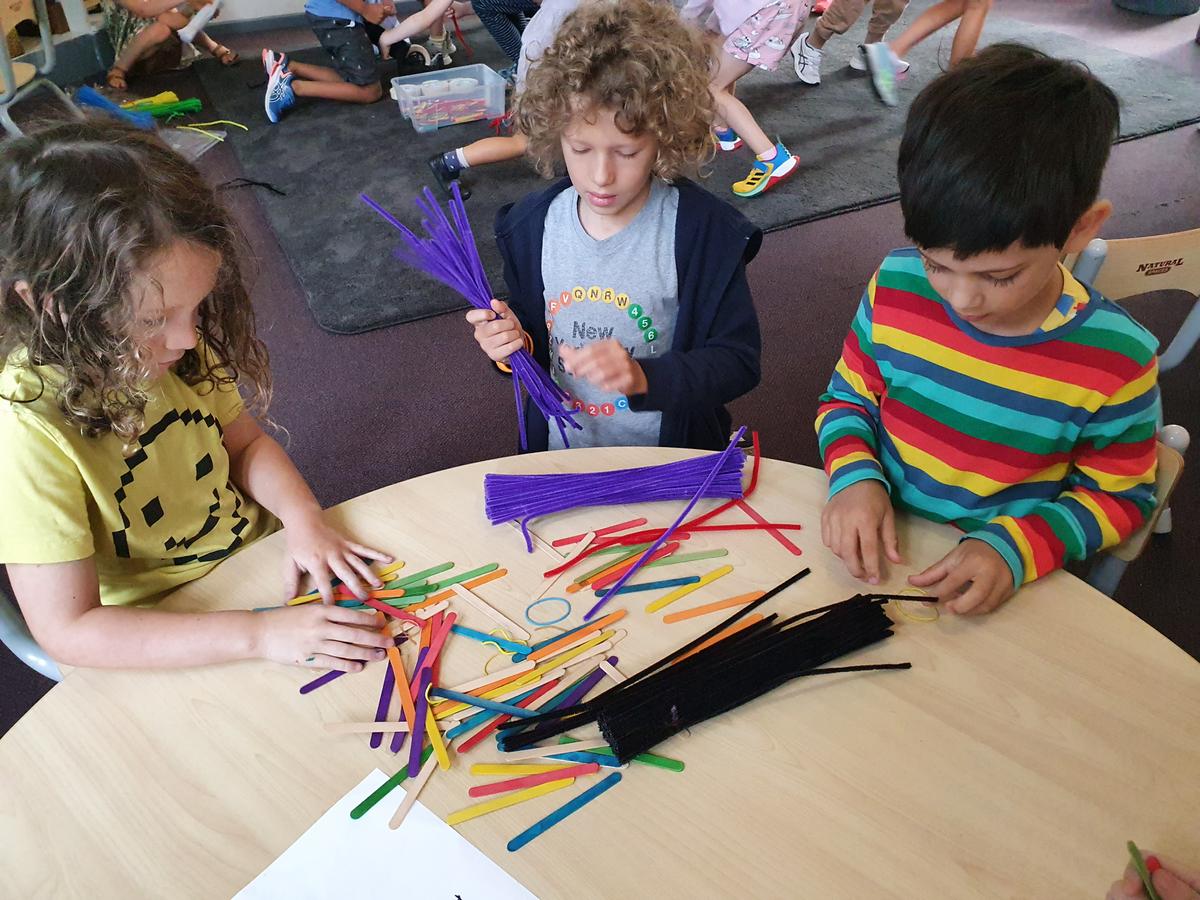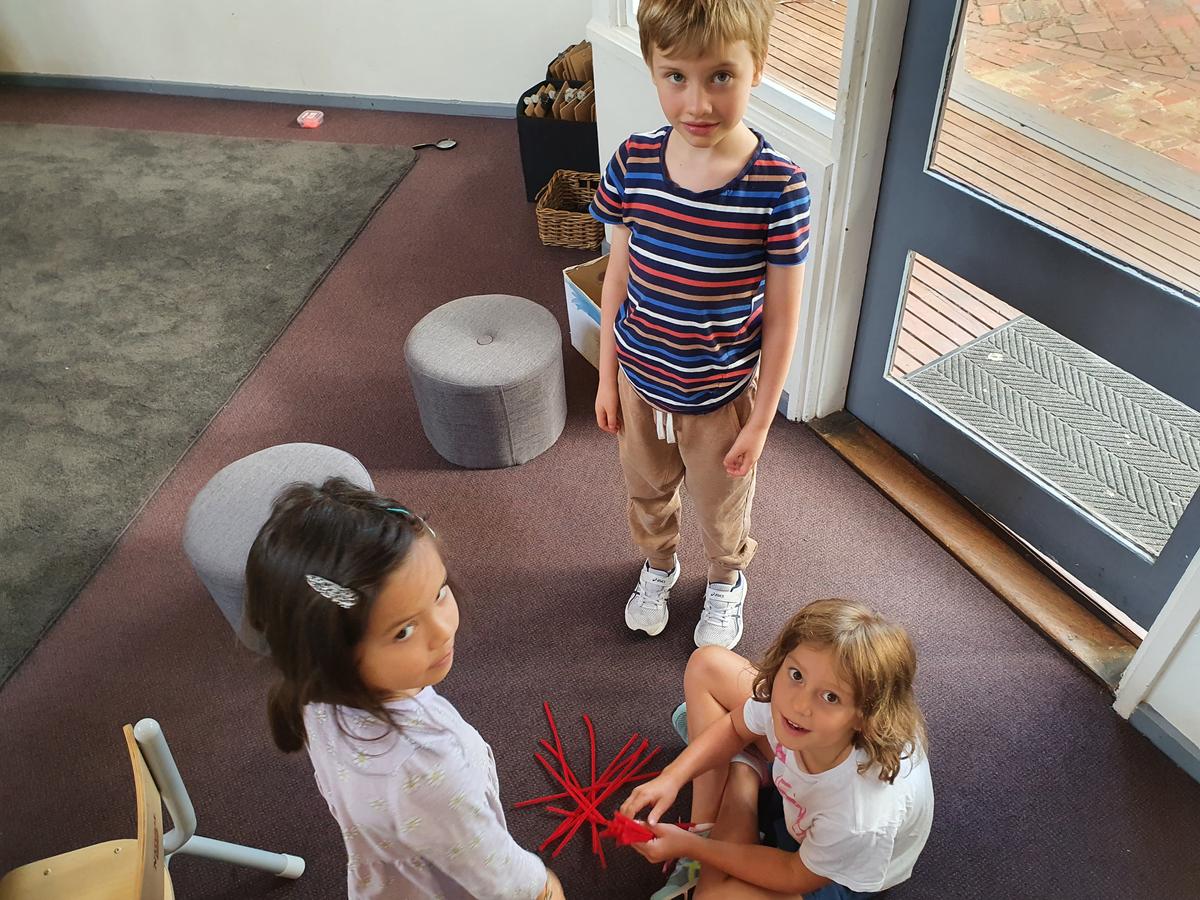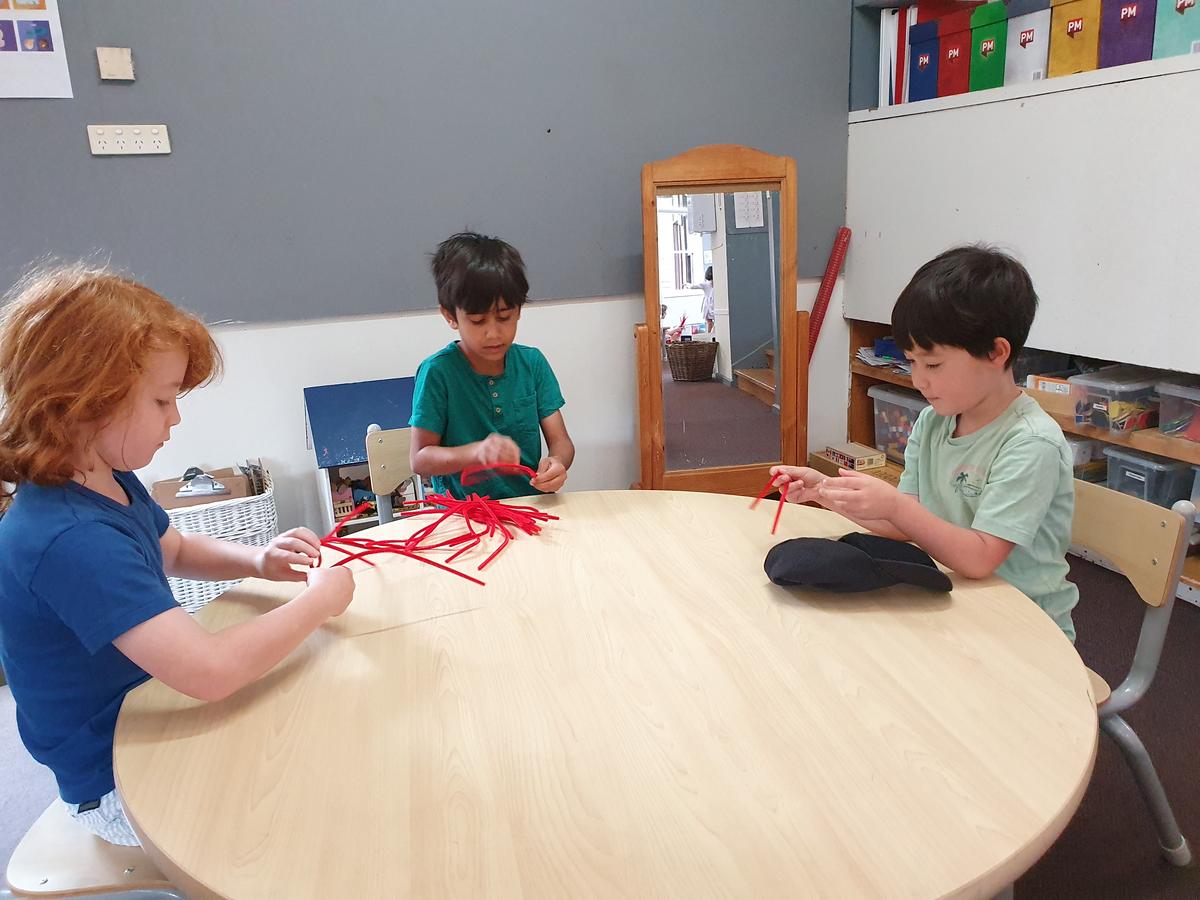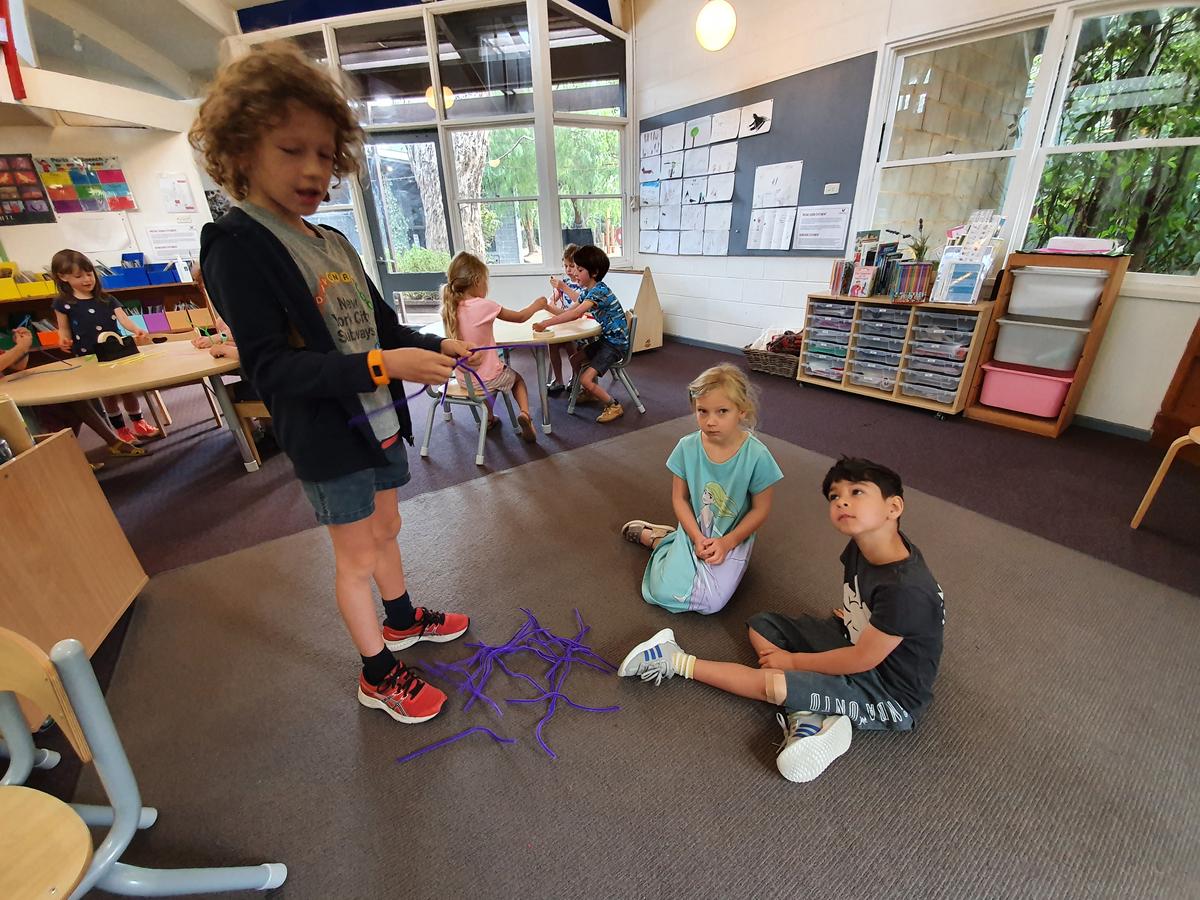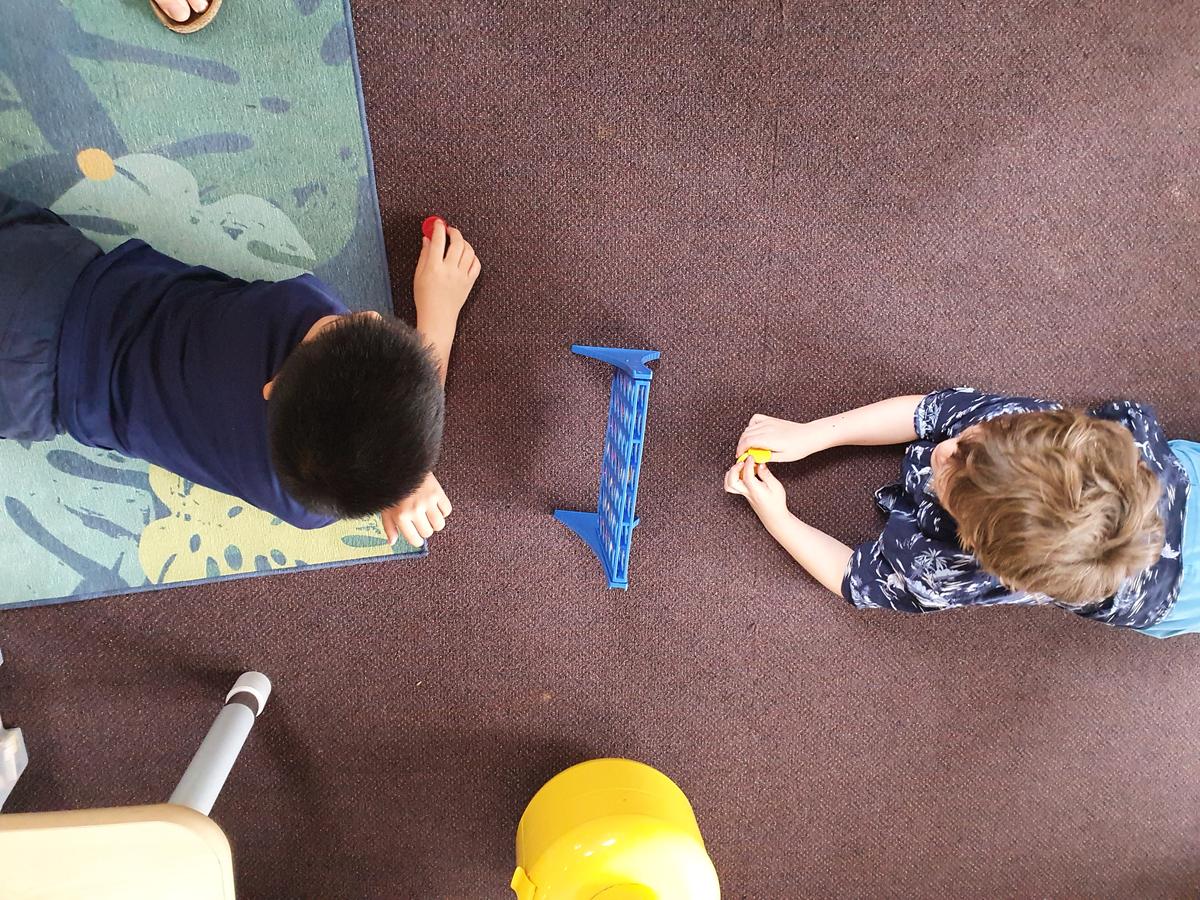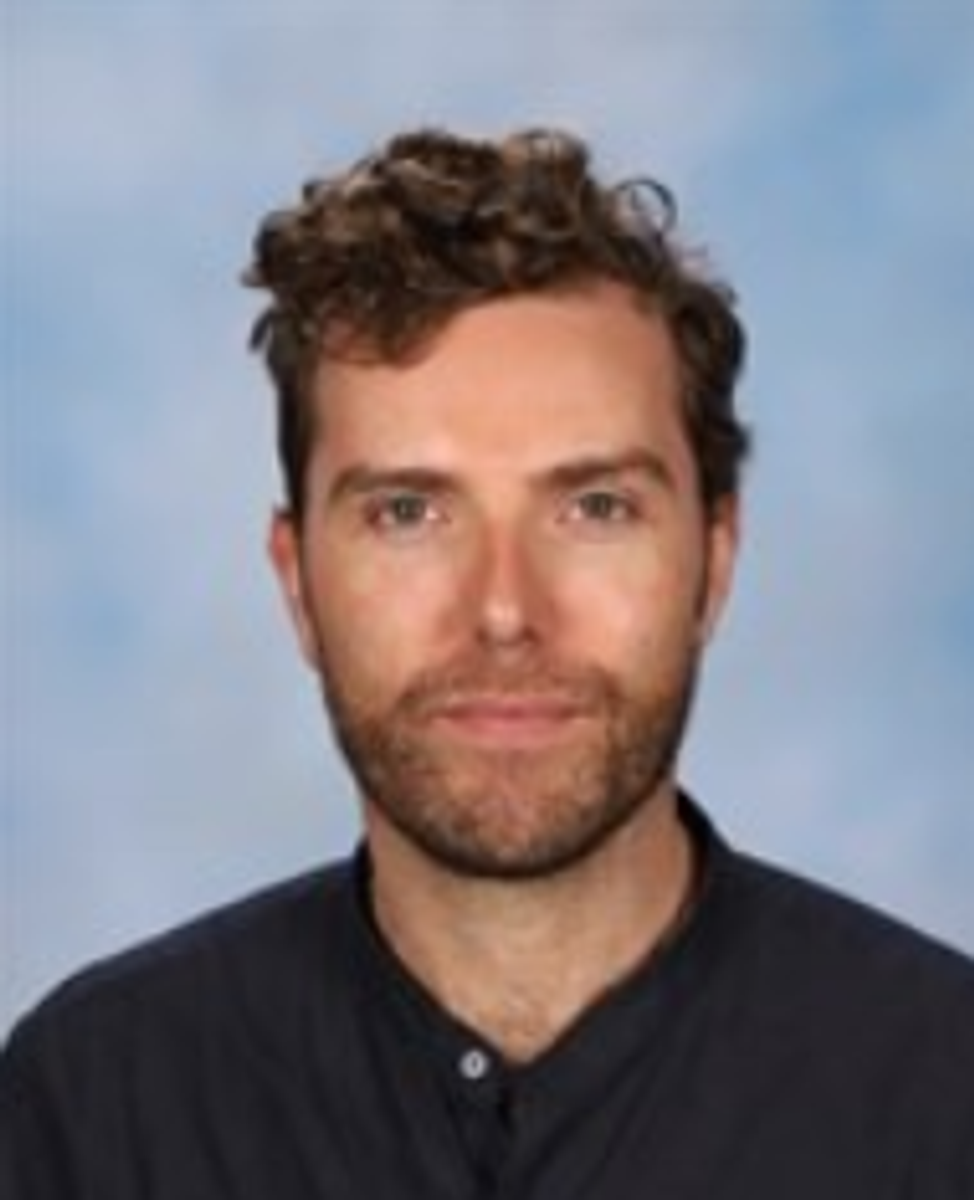Mathematics
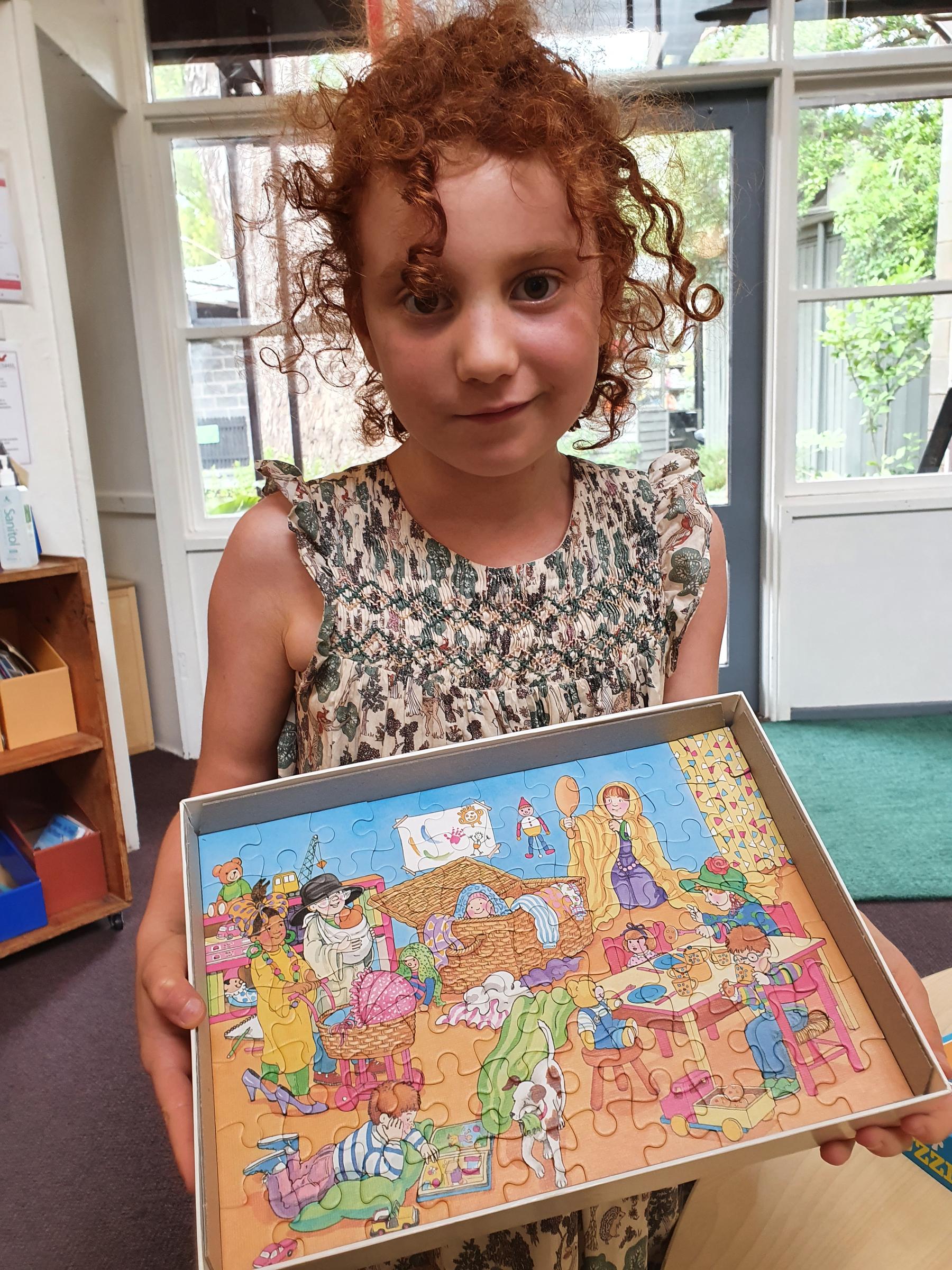
Everyday at Preshil our children explore, inquire and question to make meaning about themselves and their surroundings. This is no different to our mathematics teaching. Our maths approach is inclusive, supportive and collaborative with a clear connection to the everyday use in our daily lives. For example a recent focus in the 6s & 7s has been pattern and we have explored the natural environment to discover patterns innature.
We have discussed patterns in our group and celebrated everyone's thinking in relation to what they understand pattern to be in their world. Our collaborative discussions are thoughtful and meaningful and this is evident during maths lessons throughout the school; where children are encouraged to share their thinking about a given concept or problem and are supported to use the language of maths to give meaning to what they are describing. As pattern is a foundational mathematical concept a deep understanding will support children to think algebraically. With a deep foundational understanding, children will look, describe and extend patterns. This philosophy is reiterated in the Courage document with a quote from Margaret Lyttle: It is easy to lose sight of our approach to education, which is not that of a ‘child-centred school’... [but] a ‘task-centred school’ with its emphasis on learning through research, exploring and discovering, and drawing conclusions about the problem from which the challenge or interest has arisen.
8—Margaret E Lyttle 1978
As an IB PYP school we approach the curriculum in a transdisciplinary way and make authentic, meaningful and purposeful links with maths. Experiencing maths in this way helps our children to develop a positive attitude towards themselves as mathematicians. Maths is a language, it is creative and holistic rather than a common perception and belief that it is an isolated subject that you can or can’t do. I think it is said best in the Courage document that ‘children learn to examine, analyse, and think things through rather than waiting to be spoon-fed the answers. Children develop as lateral thinkers. As they mature these lessons learned early help them to think critically rather than blindly accept what is presented to them at face value in the wider world’.
The important thing about learning in a non-compulsion way is the children - strange fact! - grow to love learning more and more, and when they leave school wish to continue it.
5—Greta Lyttle c1940
To support the teaching of mathematics at Preshil, we use the Australian Council for Educational Research’s (ACER) Online Assessment and Reporting System (OARS). ACER is a non-governmental organisation that provides support and expertise to teachers and their organisations. It creates and promotes research based knowledge, products and services to support learning. We at Preshil use the Progressive Achievement Approach. The Progressive Achievement Test (PAT) is administered at the beginning of each year. At Preshil, we want to limit the amount of testing a child receives over the school year. ACER recommends that there should be between 9 and 12 months between each PAT testing. PAT Maths testing provides us, as teachers, with evidence of where each child is at in their learning. It supports the next steps by informing our teaching and it allows us to track the progress of each child at Arlington. At Preshil, we will never teach to the test and it is our mission that each child is supported to create and achieve their learning goals. As PAT is a whole school approach, we monitor each child as they move through the grades at Arlington, preparing them for Blackhall-Kalimna at the secondary school.
Paul O'Leary
Position of Responsibility - Mathematics
Loft Room 6s & 7s Teacher
paul.oleary@preshil.vic.edu.au

